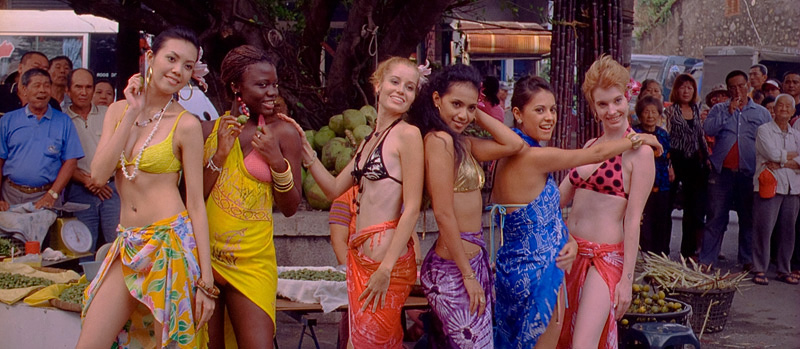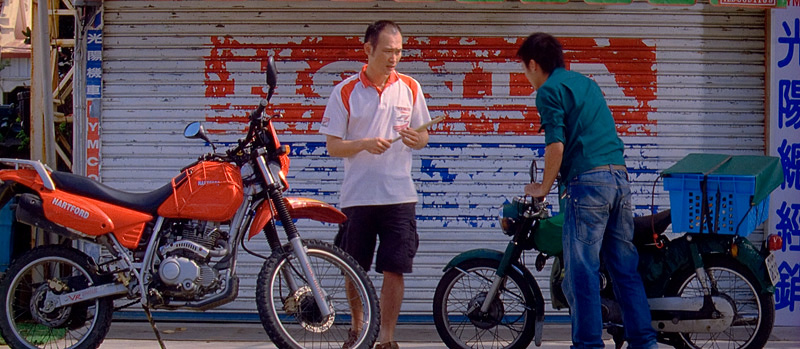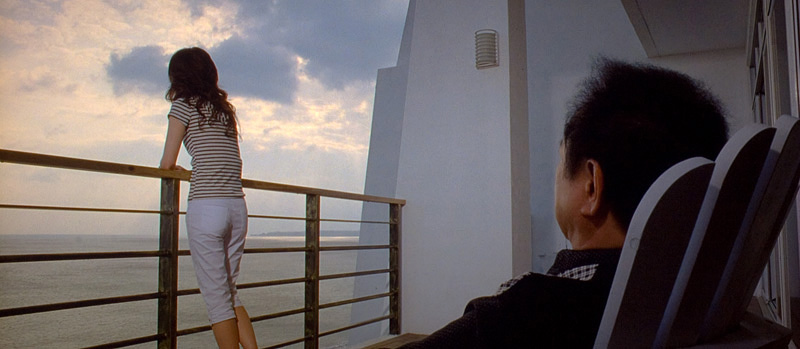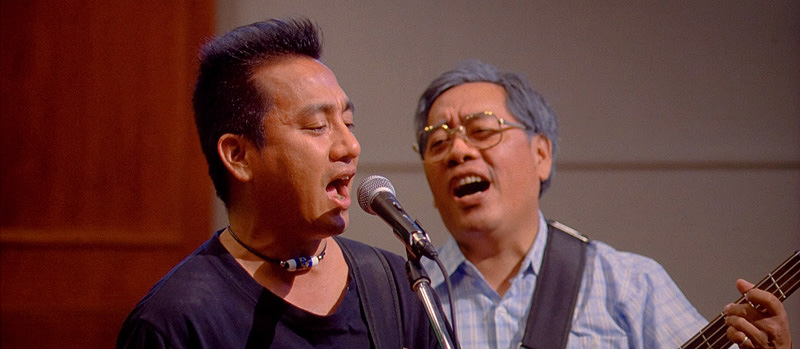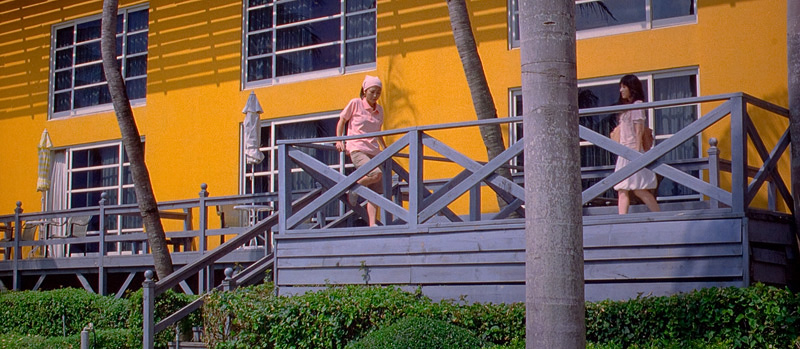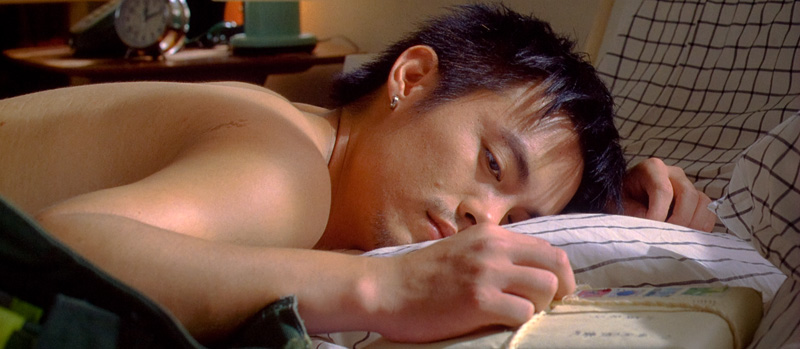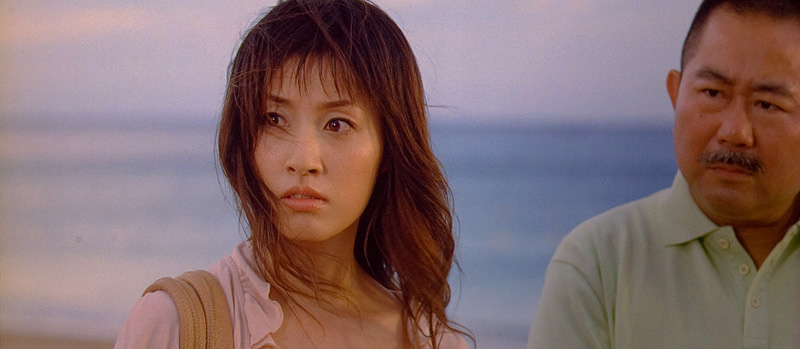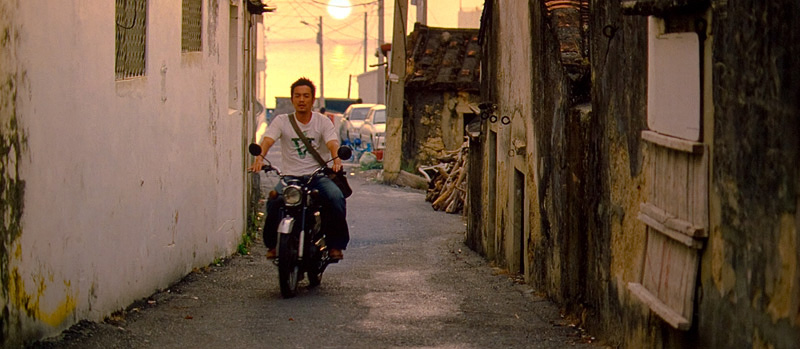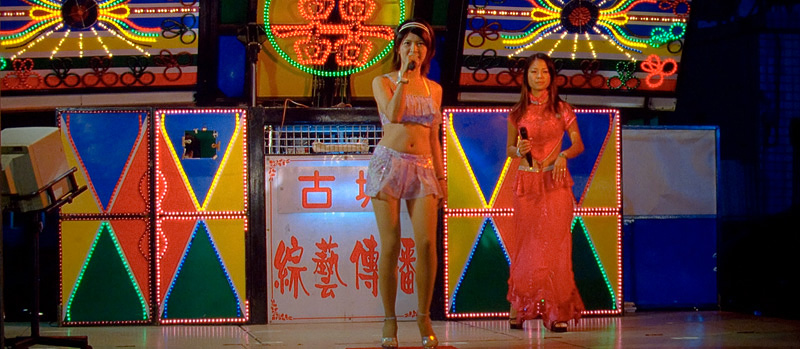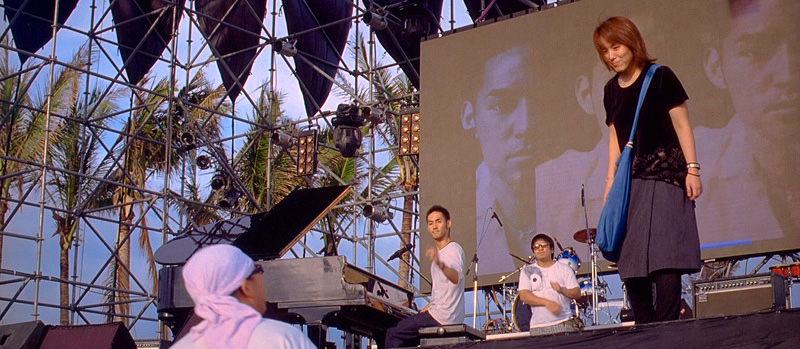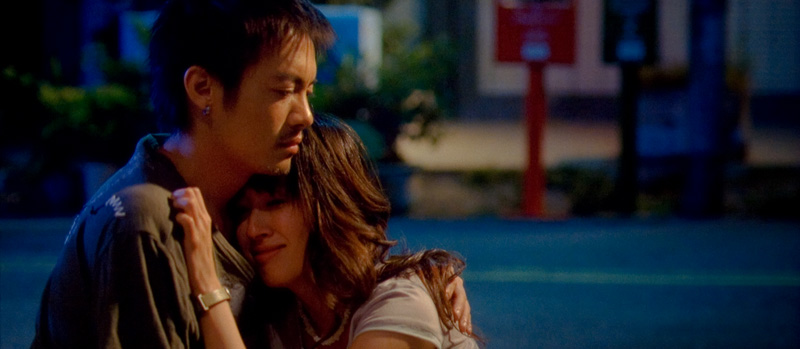Review by Leonard Norwitz
Studio:
Theatrical: ARS Film Production, Arrow Cinematic Group, &
Taipei Motion Picture Group
Blu-ray: Deltamac (Hong Kong)
Disc:
Region: All
Runtime: 130 Minutes
Chapters: 15
Size: 50 GB
Case: Standard Blu-ray case w/ slipcover
Release date: January 2nd, 2009
Video:
Aspect ratio: 2.40:1
Resolution: 1080p
Video codec: AVC
Audio:
Mandarin LPCM 5.1. Mandarin Dolby TrueHD 5.1
Subtitles:
Feature: Traditional Chinese & English. Bonus: None
Extras:
• Audio Commentary (w/o English Subtitles)
• Making of Featurette (27:57)
• Deleted Scenes (16:57)
• Special Effects Featurette (27:23)
• Promo for Seediq Bale (5:52)
• Cast & Crew Interviews (1:01:36)
• Photo Collage Gallery in HD (3:34)
• Still Photo Gallery in HD
• Trailer (5:14)
The Film:
8
Cape No. 7 is about romance, music and the collision
of traditional and local values with cosmopolitan cultures.
All this is filmed against South Taiwan's lovely coastal
scenery in gorgeous color and vivacious sound.
The story works at a number of levels. One of them: Unable
to disclose his affection for a Taiwanese woman prior to
returning to Japan, a Japanese teacher reveals his love in
seven passionate letters. Although these letters aren’t
mailed until some 70 years later, they become a catalyst for
another intercultural love affair in the present with echoes
from the old.
Brian Hu, writing for UCLA's Asia Pacific Arts, has not only
written an excellent review of the movie (and provided some
useful background for me for this review), but offers
some keen insights about what makes movies work, and what
doesn't. I recommend it highly whether you see Cape No. 7
or not – but I do recommend the film, in any case. The
Blu-ray is superb on just about all counts, so there's no
excuse not to get this. Here are a few excerpts from Brian's
article at
HERE :
"With a cast of relative unknowns, first-time director Wei
Te-sheng exploded onto the scene with Cape No. 7,
which is not only the highest grossing film of the year thus
far, it is the highest earner in the Taiwanese box office in
at least five years and possibly the highest after 1997's
Titanic. Higher than The Dark Knight, Indiana
Jones, and The Mummy. In fact, Cape No. 7
just might be the highest grossing Chinese-language film
ever in the Taiwanese box office (not adjusting for
inflation, of course) -- higher that any film by Ang Lee,
John Woo, Zhang Yimou, or Stephen Chow. But whereas those
films cost many times more and boasted big-name actors,
Cape No. 7 emerged out of seemingly nowhere to overtake
them all and shake the industry to its very foundation.
Narrating a present romance in terms of a past romance is a
staple of Asian teen romance, perfected by the Koreans in
films like Il Mare and The Classic. The
parallel stories bolster each other's credibility. Both
romances in Cape No. 7 are frankly underdeveloped,
but because they intercut with each other, they seem to grow
in importance to the point where the final reference to the
old couple gives just enough melodramatic momentum to make
us believe in the contemporary one.
. . . the ability to cast essentially unknown actors is an
enormous asset. Cape No. 7's Fan Yi-chen has the
perfectly distraught, too-mysterious-to-smile look. He's
rocker cool (dark, ambiguous), not the clown cool you get in
most Taiwanese pop culture, like the self-loving parade of
obnoxiousness populating films like Exit No. 6 or
My DNA Says I Love You. Fan Yi-chen's depressed look is
balanced by cheery sidekicks like Ma Nien-hsien (who plays
Malasun) and Hsi Tien Huang (who plays the chairman). Chie
Tanaka (Tomoko) and Chin-Yen Chang (Meiling) are attractive
as the love interests, but they don't look like models and
therefore never become distracting (ahem, Red Cliff).
{Cape No. 7} belongs to the "putting-on-a-show"
subgenre of the Hollywood musical. Those are the films (like
Singin' in the Rain or the many 1950s rock musicals)
about talented young people who overcome all odds to put on
a once-in-a-lifetime musical extravaganza that combines
romance, youth, and independence.
The ending scene onstage is written by somebody who surely
knows Hollywood melodrama. There's no surer trick in the rom-com
handbook than to have the cool male character embarrass
himself to everyone to prove his love for the girl. And if
the music is just right, and the shots and reverse shots are
perfectly timed, the audience is yours. Then throw in a few
laughs so they can chuckle through their tears. Melodrama
doesn't work better than that."
–
Brian Hu
Image:
9/10
The first number indicates a relative level of excellence
compared to other Blu-ray video discs on a ten-point scale.
The second number places this image along the full range of
DVD and Blu-ray discs.
Despite the digital intermediate transfer from film, the
final image on Blu-ray is awesome. I find no distracting
artifacts or enhancements. Cape No. 7 comes by its
solid image is by way of high bit rates in the 30s, a color
palette just vivid enough to give the impression of fantasy,
but not over-the-top or excessively filtered. We are
surprised to learn in the extensive credits (that mention
those responsible for telecine and transfer to Blu-ray among
other things) of how extensive was processing after initial
filming. Not that this isn't evident, but it never flies in
our face or insult our notion of the rightful order of
things – which is a roundabout way of saying that his is one
hell of an image.
Audio & Music:
9/8
Readers of this column know how much I complain of audio
mixes that do not discriminate voiceover narration
sufficiently. We should be able to tell who is speaking and
why with our eyes closed. It is not enough to be clear, it
needs to make sense without our trying to make it make
sense. Cape No. 7 performs this minor miracle as
naturally as rolling out of bed – with your choice of two
lossless tracks. The same attention to identity and meaning
is paid in sorting the sound of one location from another,
just as you would expect to hear in the differentiation of
instruments, just as you would expect in the sound of
amplified music vs. acoustic, indoors and out. This makes
the motion picture experience that much more involving,
because we work at it less, leaving us free to be swept
along by wherever it wants to take us.
Operations:
5
Cape No. 7 has a lovely menu design that suggests the
romance and nostalgia it portends. The scene selection menu
page took me a moment to realize it was simplicity itself,
even though not the usual layout. All of the functions and
page links are in both Chinese and English. However, none of
the extra feature items are offered with English subtitles.
As for the translation of the feature film, I must report
that it isn't up to recent Hong Kong movie-on-video
standards. While we rarely need to scratch our heads to sort
out the intended meaning, there are more instances than we
should expect of grammatical and usage errors –my favorite
being the invention of the term "weeps" in place of
"crying."
Extras:
7*
There are an abundance of extra features, including a
feature film commentary, an hour-long set of interviews with
cast members and crew, and a segment on the special effects
used for the film. The latter two are in 480p, but the two
self-guiding photo galleries are in HD.
*Alas, none of the extra feature items are offered with
English subtitles, which is particularly disappointing in
light of the hour-long cast and crew interviews. There is
also a fund-raising promo for Seediq Bale, a film about the
1930 uprising against the Japanese in 1930, expected to
begin production late this year – and directed by Wei Te-Sheng.
|
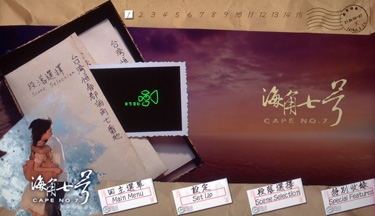 |
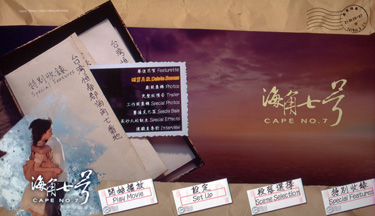 |
|
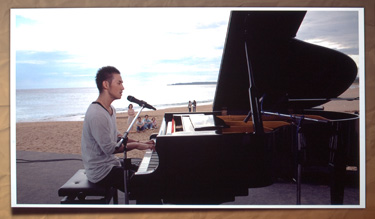 |
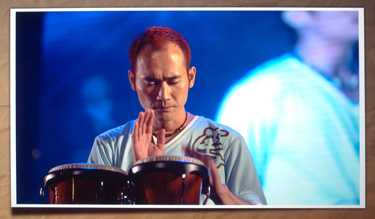 |
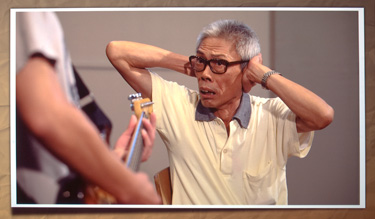 |
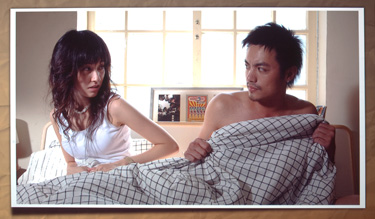 |
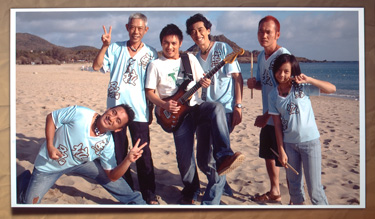 |
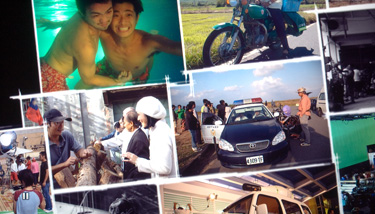 |
Bottom line:
8
How often do we get to see a popular Taiwanese film, let
alone one in glorious Blu-ray high-definition picture and
audio! Not very. Cape No. 7 is not without its
faults, none more disquieting than the lack of romantic
development of the two sets of lovers. I wasn't even
entirely convinced that the modern pairing had what it took
to find the necessary chemistry. But romance is in the air
all throughout the movie. It is so infectious that I could
forgive its being casual about what I thought should be
front and center. Perhaps a second viewing would tell a
different story. I rather expect it. Too bad about the lack
of English subtitles on the Extra Features and less than
perfect translation, but otherwise this is an outstanding
entry and one I heartily recommend.
Leonard Norwitz
March 18th, 2009
![]()
![]()

![]()
![]()
![]()
![]()

![]()
![]()



